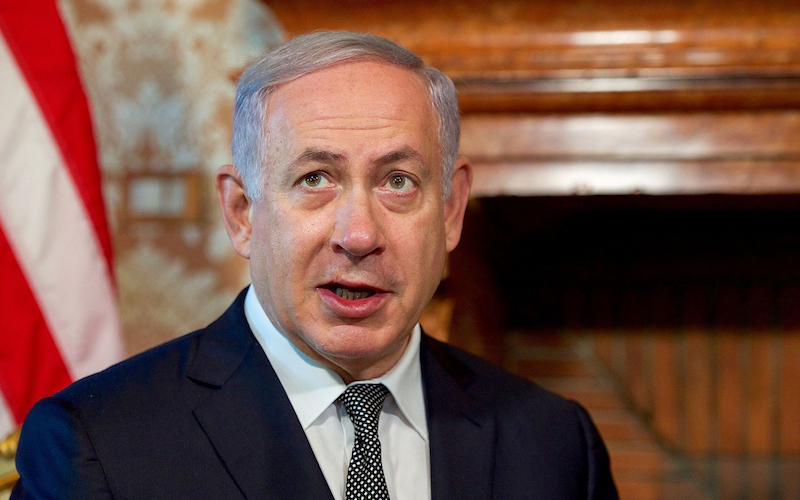
Is Trump Letting Down Israel?
President Trump took office promising he would usher in a new era of American-Israeli relations. He would not treat Israel like a “second-class citizen,” which he claimed his predecessor did. With President Trump’s three months into the job, we can begin to judge whether he has bumped Israel’s seat up to first-class.
Right off the bat, Israel was looking for President Trump to abandon the Iran Deal. It was Israel’s greatest source of conflict with the Obama administration and Iran is still its most pressing security concern. After all, President Trump himself referred to the deal numerous times while on the campaign trail as one of the worst deals in history. President Trump, however, has now stated that the Iran Deal is here to stay, because Iran has kept the guidelines of…“The worst deal I’ve ever seen negotiated.” Keeping his predecessors policy greatly disappoints Israel and the numerous pro-Israel voters in America whose vote he garnished.
On a greater scale, President Trump has made little foreign policy moves to combat Iranian influence across the Middle East. The decision to retaliate against Assad’s usage of chemical weapons seems to have been more of an emotional response than a strategic one. His approval of a military raid in Yemen against a top Al-Qaeda leader, has yet to be followed up with a greater overarching plan to decrease Iranian influence. Finally, his decision to drop America’s most lethal non-nuclear bomb on ISIS in Afghanistan is not emblematic of American strength if it’s met with soft policy elsewhere. Case in point, retreating from his harsh words on the Iran Deal.
In ironic fashion, his launch of 59 Tomahawk missiles on Assad’s airstrip, actually negatively impacted Israeli and American interests. In doing so, America has greatly distanced itself from Russia. This alienation allows for Russia to continue its unchecked support of the Shiite Axis, which is Israel’s greatest threat. When America severs diplomatic relations with Russia, its ability to manage Russia’s level of Middle Eastern influence is lost, leaving Israel to fend for itself against Hezbollah, Assad, and Iran. Had diplomacy with Russia not been severed, “getting along” with President Putin may have decreased Iranian influence in the region and worked in unison with Israeli interests.
For these reasons, and because of the desultory policies of former President Barack Obama, Prime Minister Netanyahu has been labeled to have a “bromance” with President Putin. This has left Israel alone in putting band-aids on the mortal wounds America has caused Israel in the region.
With American-Russian ties greatly strained, Russia can afford to be more hawkish in the region which hurts Israel because it disregards America’s interests. An example we all can relate to, is when you get in a fight with your best friend, you do something you guys would have done together alone, because why should you care about your best friend if you’re not best friends?
The cards that have been falling in line so perfectly, that they may have led you to believe that the pernicious Middle East situation is being orchestrated by chess master Bobby Fischer do not stop there, however.
Russia, in attempt to appease Israel, despite its Shiite support, acknowledged West Jerusalem as Israeli territory, an acknowledgment unmatched by any other country. The acknowledgment also signals that Israel and Russia do have a working, perhaps, growing relationship. President Trump, who vowed to move the United States embassy from Tel Aviv to Jerusalem, has yet to impliment his policy. Russia’s decision on West Jerusalem leaves the ball in President Trump’s court. The world’s eyes are on him to see if he will respond with a counter move of his own. If President Trump fails to move the embassy to Jerusalem, which is the rumor on the street, it will make his commitment to Israel look even worse.
To top off the cake, when President Trump held a press conference at the White House with Prime Minister Netanyahu in the beginning of his presidency, he asked Netanyahu if he could “hold off” on settlement building for the time being. Pro-Israel Americans and Israelis alike met the surprise comment with shock. Settlement expansion has been a key principle amongst Netanyahu’s time as Prime Minister and many expected President Trump to support the policy. The comment has left conservative Israelis and Americans in the dust, wondering if President Trump’s four years will be distinguishable from the previous eight.
President Trump has yet to meet the high expectations he set for his relationship with Israel. To his credit, Nikki Haley has been doing great work in fighting and exposing the rampant Israel bias in the UN, but her words are not enough to secure the tangible Israeli interests President Trump has promised to defend.

